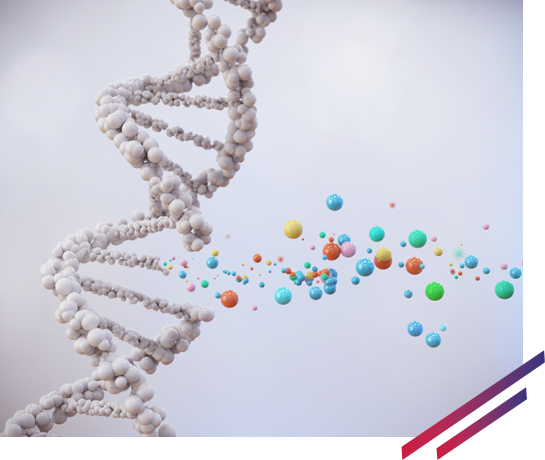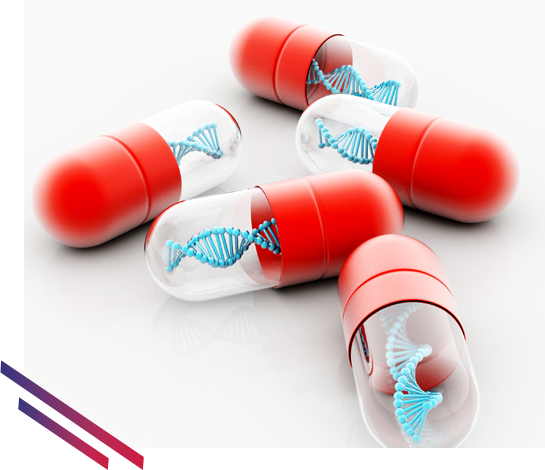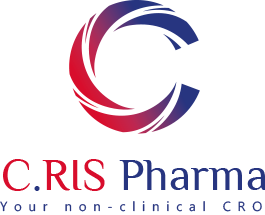PHARMACEUTICAL INDUSTRY & TOXICOLOGY STUDIES
C.RIS Pharma is a GLP compliant grade A center and offers a full range of in vitro and in vivo GLP and non-GLP toxicology studies!
From the first discussion to the submission of your dossier to the regulatory authorities, we work hand in hand with you in the successful development of your toxicology program. We evaluate your needs and the regulatory requirements depending on the application in terms of your product’s application and build a study made to measure for you.
Genetic Toxicology & in vitro studies
C.RIS Pharma performs various in vitro assays to test the genetic toxicology of new active molecules.
Through Bacterial Mutation Assay (Ames test, OECD 471), we can determine the mutagenic potential of the test substance by the standard or screening methods.
To study the genotoxicity of a new molecule in mammalian cells, C.RIS Pharma offers you two methods.
The Micronucleus Test (OECD 473 and 474) is designed to identify aneugenic and clastogenic substances. This test is performed in vitro by using Chinese Hamster (CHO) cells and human lymphocytes and in vivo in rodents.
The Comet Assay (OECD 489) is also performed in vivo and is used to detect DNA strand breaks and indicate pre-mutagenic lesions.
To take genetic testing a step further and pursue in-depth in vitro studies, we evaluate the cytotoxicity of a compound in cultured and primary cells. It is an essential indicator for in vitro biological evaluation.

Pharmaceuticals can induce a toxic reaction when applied to the skin and associated with light exposure. The 3T3 Neutral Red Uptake (NRU) assay evaluates this risk of phototoxicity by the relative reduction in viability of cells exposed to the drug in the presence versus absence of light (OECD 432).
At C.RIS Pharma, to test irritation and corrosion potential of new substances, in vitro alternatives are used to replace traditional models. For acute toxicity study on skin, tests on human skin biopsy are conducted (OECD 431 and 439) and for eyes, we apply the Hen’s Egg Test-Chorioallantoic Membrane (HET-CAM) according to ICCVAM recommendation.
We also evaluate dermal absorption of drugs (OECD 428) on cell lines by direct or indirect contact.

General Toxicology
C.RIS Pharma carries out general toxicology studies following GLP regulations to evaluate the safety of your drug candidate. Our expertise in this domain allows us to design tailored toxicology studies to answer your specific needs depending on the type of sample (small molecule, biologic, medical device), the route of administration and the specie by optimizing resources and costs.
Our general toxicology studies range from acute to chronic toxicity assessment.
We perform Maximal Tolerated Dose (MTD) using a variety of methods and Dose Range Finding (DRF) studies to guide the design and dose levels for subsequent toxicity studies.
Non-clinical local tolerance testing is also undertaken in our facilities to determine the reaction induced by immediate contact with the drug. It is intended to support initial testing in clinical trials.
Acute and subacute toxicity studies are conducted to evaluate the potential adverse effects of a new compound following a short treatment period. Taking this a stage further to provide conclusions on the long-term effects of a test substance, we also run sub-chronic and chronic toxicity studies up to 1 year.
Carcinogenicity studies involve exposing rodents to the drug product for a long period to generate data and evaluate the potential oncogenicity of the test substance in animals in order to assess the possible risk for humans. Our scientists will advise on the appropriate strategy for tumorigenicity testing to satisfy regulatory requirements (OECD 451 and 453).
At C.RIS Pharma, we develop comprehensive reproductive toxicology programs to ensure the safety of a test article, from fertility of the treated animal to second generation reproductivity according to ICH and OECD guidelines. Male and female fertility and early embryonic development to implantation are studied as well as pre- and post-natal development and embryo-foetal development. Toxicology on neonatal and juvenile can also be evaluated. Toxicokinetic can be included in all these reproduction toxicology studies.
Immunotoxicity and immunogenicity evaluations aim to respectively evaluate the potential toxicity of a new therapeutic on immune cells and the immune response induced by exposition to a foreign substance. Immunogenicity assessments are performed in animal and human samples by validated methods like immunochemistry and Western-Blot.
